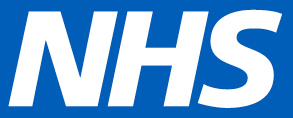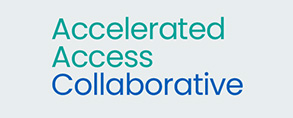Innovation for Healthcare Inequalities Programme (InHIP)
About the programme
NHS England’s Innovation for Healthcare Inequalities Programme (InHIP) aims to address local healthcare inequalities experienced by deprived and other under-served populations. It is a unique collaboration between the Accelerated Access Collaborative (AAC), NHS England’s National Healthcare Inequalities Improvement Programme and the Academic Health Science Network (Health Innovation Network) and delivered in partnership with integrated care systems (ICSs).
Project teams (comprising of clinical and non-clinical expertise) from across the country are working together with their local communities to identify, address and minimise healthcare inequalities through projects to improve access to the latest health technologies and medicines. These technologies and medicines are focused on five clinical areas of priority which closely align with the national Core20PLUS5 approach to reducing healthcare inequalities which includes maternity, mental health, respiratory, cancer diagnosis and cardiovascular disease (CVD). Key to the projects are voices from local communities who are guiding this work to make sure that those most in need will benefit from it.
Nationally a total of £4.2 million was made available to support NHS England’s InHIP programme for eligible local projects across England.
Health Innovation West Midlands (HIWM) has engaged with health inequality teams, commissioners, and clinicians in all six systems across the West Midlands, as well as regional health inequality leads from NHS Midlands and the Office for Health Improvement Disparities (OHID). This has led to an in-depth understanding around the unique health inequality challenges faced by communities within the region, current ongoing work and system priorities.
Local intelligence gained, enabled HIWM to support systems with bids for InHIP funding to support local projects. This has resulted in an inward investment of £500,000 across the region to support projects aimed at reducing healthcare inequalities by using the latest technologies and medicines.
Local InHIP projects across the West Midlands include:
CVD prevention outreach projects
Between 2020 and 2021, there were 2,383 excess deaths in the most deprived areas of the West Midlands that were related to heart disease and stroke1. These deaths would have been avoided if the most deprived areas in the region had the same mortality rate as the least deprived areas. This data highlights the significant unwarranted impact CVD has on communities living with health inequalities.
As CVD is preventable through early detection and optimal management of high-risk conditions, HIWM has worked with several systems to support the design of outreach projects that attempt to detect atrial fibrillation, high blood pressure and high cholesterol, in locally defined populations experiencing health inequalities.
Asthma detection and optimal management
As with CVD, respiratory conditions account for a significant proportion of excess deaths in the most deprived communities [1]. Asthma is the commonest long-term condition and is more common in deprived communities [2]. Effective treatments for asthma exist but are not deployed for a variety of reasons, and instead there is an over reliance on short acting bronchodilators which are associated with an increased risk of death [3].
Building upon the successes of similar previous programmes of work, one system has chosen to focus on increasing the detection and optimal management of asthma in deprived communities. Primary care teams will be supplied with innovative FeNO devices to assist in the detection of asthma, and pathways will be developed to enhance access to asthma biologics.
All projects will involve conversations with voices from the local community to understand some of the difficulties experienced accessing services. Removing barriers to access and positive experiences and outcomes will be the key to success for these projects.
In order to ensure all work is sustainable for the long term, project teams will work with community and voluntary sector organisations and seek to upskill existing workforces in the delivery of these projects. This will enable long lasting, meaningful change, to continue past the end of the funded projects, creating an equitable service for the future.
In addition to the funded InHIP projects, HIWM continues to work with ICS and regional colleagues to understand current health inequality landscapes, offer support to emerging priorities, and target existing projects towards those in the most deprived communities first.
References:
- OHID – Segment tool
- Asthma UK – On the edge: How inequality affects people with asthma
- Royal College of Physicians – Why Asthma Still Kills: The National Review of Asthma Deaths (NRAD)
Project Partners:


